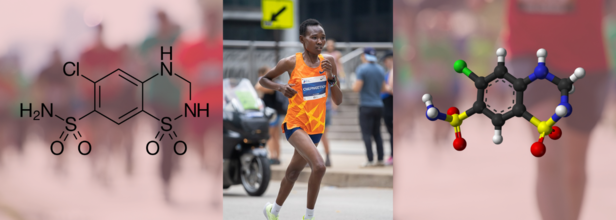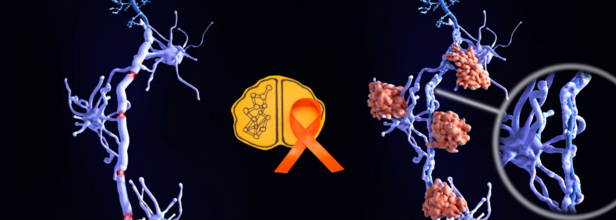- Health Conditions A-Z
- Health & Wellness
- Nutrition
- Fitness
- Health News
- Ayurveda
- Videos
- Medicine A-Z
- Parenting
- Web Stories
An Expert Panel Has Recommended Banning Heart Burn Pills In India, Know Why

Credits: Canva
A nationwide ban on ranitidine, one of India’s most widely used antacids, may soon be on the cards. A confidential report by an expert panel has flagged serious health risks associated with the drug, particularly its potential to cause cancer. Submitted to India’s Drug Technical Advisory Board (DTAB), the findings have triggered deliberations on whether to suspend the manufacture, sale, and distribution of the drug across the country.
The Cancer Risk Behind Ranitidine
The expert committee’s report, accessed by News18, highlights the presence of N-nitrosodimethylamine (NDMA) in several samples of ranitidine tested at the Central Drug Laboratory in Kolkata. NDMA is a chemical impurity classified as a probable human carcinogen. It is considered unsafe when consumed over a prolonged period in concentrations above global safety standards.
Out of the 42 samples tested, 21 were found to contain NDMA levels above 0.32 parts per million (ppm)—the internationally accepted limit. This finding has raised red flags, as it confirms that nearly half the samples exceeded the safety threshold.
What Is Ranitidine and Why Was It So Popular?
Ranitidine, developed in 1981 by Glaxo Holdings Ltd (now GlaxoSmithKline), quickly became a go-to medication for millions around the world. In India, it is widely available over-the-counter under brand names like Rantac, Zinetac, and Aciloc. It is primarily used to reduce stomach acid and treat issues such as indigestion, heartburn, gastroesophageal reflux disease (GERD), and ulcers.
Due to its affordability and easy accessibility, ranitidine became a staple in Indian households. Despite its ban in countries like the United States, Australia, and across Europe due to the NDMA contamination concerns, it has continued to be sold in India.
Global Regulatory Response
Ranitidine first came under global scrutiny in 2019, when international regulators began detecting unsafe levels of NDMA in the drug. The US Food and Drug Administration (FDA), the European Medicines Agency (EMA), and Australia’s Therapeutic Goods Administration (TGA) all pulled the medication from their respective markets.
These agencies took the precautionary step of banning or recalling ranitidine to prevent long-term health risks in the population. They also recommended alternative treatments for acid reflux and ulcers, including other classes of antacids.
India’s Position So Far
While India did not impose an outright ban, the Central Drugs Standard Control Organisation (CDSCO)—the country’s apex drug regulator—acknowledged safety concerns as early as 2019. However, regulatory action remained limited. In December 2024, the government informed the Rajya Sabha that safety concerns were being addressed, though no concrete steps were taken until recently.
A key development came in 2022, when ranitidine was removed from the National List of Essential Medicines (NLEM). This was seen as a soft warning to healthcare providers and the public. The CDSCO also issued multiple advisories but stopped short of a suspension or recall.
What Happens Next?
Now that the expert committee has submitted its findings to the DTAB, the board is expected to review the recommendation for suspending ranitidine. If the board agrees, India may finally join the list of countries that have banned the drug.
In the meantime, doctors and pharmacists may begin advising patients to explore alternative treatments for acid-related disorders. Consumers, especially those with long-term use of ranitidine, are encouraged to consult their physicians and avoid self-medication.
As regulatory bodies weigh their next move, public awareness and medical guidance will be key to ensuring a safe transition away from ranitidine.
Ruth Chepngetich Suspended As Her Dope Test Found Increased Levels Of HCTZ That Dilutes Other Drugs From Being Detected

Credits: Wikimedia Commons
In a major blow to the athletics world, Ruth Chepngetich, the women’s marathon world record holder, has been provisionally suspended after testing positive for a banned substance. The Athletics Integrity Unit (AIU) made the announcement on Thursday, July 17, sending ripples across the global running community.
The 30-year-old Kenyan runner, who has been hailed as one of the most dominant figures in long-distance running, now finds her illustrious career under intense scrutiny.
What Is the Drug Behind the Ban?
Chepngetich tested positive for hydrochlorothiazide (HCTZ), a diuretic commonly used in medicine to treat conditions such as high blood pressure and fluid retention.
While HCTZ is not a performance-enhancing drug, it is classified as a prohibited substance by the World Anti-Doping Agency (WADA) due to its potential use as a masking agent.
HCTZ increases urine output, which can dilute the concentration of other substances in the urine, including performance-enhancing drugs, making them harder to detect. This is why it remains under strict monitoring in competitive sports.
Chepngetich’s sample, collected on March 14, 2025, reportedly showed an HCTZ concentration of 3,800 nanograms per millilitre, dramatically higher than the WADA threshold of 20 ng/mL. This has raised immediate red flags for potential misuse.
Under Scrutiny
Before this suspension, Ruth Chepngetich’s career had been nothing short of phenomenal. She captured global attention in October 2024 when she smashed the women’s marathon world record at the Chicago Marathon, clocking in at 2:09:56, nearly two minutes faster than the previous record held by Ethiopia’s Tigst Assefa. It was her third Chicago Marathon victory, reinforcing her status as a marathon titan.
Chepngetich’s reputation was also built on her grit, especially visible during her gold medal win at the 2019 World Championships in Doha, where she overcame brutal midnight heat to win the marathon. These performances had elevated her to the status of a national icon in Kenya, a country with a rich tradition in long-distance running.
However, the doping revelation now casts a shadow over those accomplishments and has triggered broader concerns about doping in elite marathons.
Investigation Timeline and Next Steps
According to the AIU, Chepngetich was notified of her positive result on April 3, 2025. While she wasn’t immediately banned, she voluntarily accepted a provisional suspension on April 19 as the investigation began.
“Chepngetich was not provisionally suspended by the AIU at the time of notification; however, on 19 April, she opted for a voluntary provisional suspension while the AIU’s investigation was ongoing,” said Brett Clothier, Head of the AIU.
On July 17, the AIU formally issued a Notice of Charge and imposed its own provisional suspension, pending further action.
Chepngetich now has the right to challenge the findings and present her defense before a Disciplinary Tribunal.
If the charges are upheld, she could face a ban of up to two years, depending on whether the tribunal finds aggravating circumstances or any prior infractions.
While Chepngetich’s case is still under review, it adds to a troubling pattern that could shake public trust in elite sports. Her legacy — once built on speed, stamina, and triumph — now hangs in the balance.
New Oral Treatment Offers Hope For MS Patients Battling Muscle Spasticity

Credits: Canva
For many individuals living with multiple sclerosis (MS), muscle spasticity, an often painful and limiting symptom, can be one of the most persistent and frustrating aspects of the disease. Characterized by stiff or tight muscles that resist movement, spasticity can interfere with basic activities like walking, dressing, or even sleeping. But an encouraging breakthrough may be on the horizon.
Researchers at the University of Cincinnati’s Gardner Neuroscience Institute are currently conducting a promising Phase 2 clinical trial for a new oral drug that targets the body’s endocannabinoid system, a natural internal mechanism that helps regulate muscle tone and relaxation. Rather than introducing an external muscle relaxant, this treatment is designed to enhance the body’s own ability to ease muscle stiffness by preventing the breakdown of naturally occurring compounds called endocannabinoids.
“Our goal is to find a treatment that’s not only effective, but also better tolerated during the day,” said Dr. Shahla Hosseini, MD, PhD, in a statement released by the university. “Most existing oral medications come with side effects like drowsiness or fatigue, which can significantly reduce a patient’s quality of life.”
How the New Drug Works
The new treatment under investigation inhibits specific enzymes that normally break down endocannabinoids in the body. These endocannabinoids function like the body’s natural muscle relaxers, but in people with MS, their levels tend to be low. By elevating endocannabinoid levels, the drug aims to restore better muscle control without the sedation that plagues current treatments.
This trial will involve approximately 200 participants from multiple international sites, making it a robust, multicenter effort. Over a period of six weeks, participants will be randomly assigned to receive one of three different doses of the study drug or a placebo. There’s also an optional six-week extension, which allows all participants to potentially receive the active drug and helps researchers compare the varying doses more effectively.
If successful, the trial could pave the way for a new class of medications to be used in tandem with current therapies like physiotherapy and botulinum toxin (Botox) injections. The drug’s oral format also means it could offer a non-invasive, easier-to-manage option for long-term symptom relief.
Broader Potential Beyond MS
While this trial is focused on MS-related spasticity, researchers are hopeful that the drug could eventually help individuals with other neurological disorders that impact muscle control, including spinal cord injuries, cerebral palsy, and stroke. This makes the study’s success particularly significant, not just for those with MS, but for a wider community of patients affected by similar conditions.
What is Multiple Sclerosis (MS)?
Multiple sclerosis (MS) is a chronic autoimmune disease that affects the central nervous system—including the brain and spinal cord. In MS, the immune system mistakenly attacks the protective sheath (myelin) that covers nerve fibers, disrupting the communication between the brain and the rest of the body. Over time, this can lead to nerve damage and deterioration.
Common Symptoms of MS:
- Muscle spasticity or stiffness
- Fatigue
- Difficulty walking or maintaining balance
- Vision problems (e.g., blurred or double vision)
- Numbness or tingling, especially in the limbs
- Cognitive difficulties
- Bladder and bowel dysfunction
- Pain or muscle cramps
Symptoms can vary widely depending on the area of the nervous system affected, and they often come and go in episodes known as relapses.
How is MS Diagnosed?
Diagnosing MS can be complex and typically involves a combination of:
- Neurological exams to assess reflexes, vision, coordination, and balance
- MRI scans to detect lesions or areas of demyelination in the brain or spinal cord
- Lumbar puncture (spinal tap) to examine cerebrospinal fluid for specific immune markers
- Evoked potential tests to measure electrical activity in response to stimuli
There’s no single test for MS, so diagnosis often involves ruling out other conditions with similar symptoms.
Think It Is Just a Cold? It Could Be Allergic Rhinitis, and Here is Why Early Testing and Treatment Matter

When the sniffles will not stop and your mornings start with continuous sneezing, it is natural to assume you have caught a cold. But what if it is something more persistent, like allergic rhinitis?
What is allergic rhinitis?
Allergic rhinitis is an allergic reaction that occurs when your immune system overreacts to allergens like pollen, dust mites, animal dander, or mould. This common condition is marked by a suite of symptoms, including sneezing spells, a runny or blocked nose, itchy, watery eyes, post-nasal drip, fatigue, poor sleep, and constant coughing. Unlike the common cold, it is not caused by a virus, and symptoms can persist for weeks or months or even all year round.
How is it diagnosed?
Dr. Manish Arya of the ENT, Allergy and Vertigo Clinic points out that “most people with allergies are unaware of the exact trigger causing their symptoms. That is where the skin prick test (SPT) comes in.”
This quick, safe diagnostic tool involves pricking tiny amounts of various allergens into the skin—typically on the forearm or back. “If you are allergic to a substance, a small red bump (like a mosquito bite) appears in 15–20 minutes,” he explains.
The benefits of the SPT are many:
- It helps identify specific allergens such as dust mites, pollens, fungi, pets, or certain foods.
- It guides both avoidance strategies and treatment plans.
- It is painless – just small skin pricks!
What is allergy immunotherapy?
While most people turn to antihistamines or nasal sprays, Dr. Arya says that these only provide temporary relief. “That is where immunotherapy comes into play; it is like a vaccine for your allergy,” he says. Immunotherapy aims to gradually desensitise the immune system to allergens and is the only known method to reduce allergies in the long term.
According to Dr Arya, it can be administered through:
- Allergy shots (Subcutaneous Immunotherapy or SCIT)
- Under-the-tongue drops/tablets (Sublingual Immunotherapy or SLIT)
What does immunotherapy offer?
- Reduces symptom severity over time.
- Decreases dependency on medicines.
- Prevents worsening of allergies or the development of asthma.
- Safe for children and adults.
Dr. Arya emphasises, “It is a long-term investment in your health, usually taken over 3 years. In some cases, it may be extended up to 5 years. It does not contain any steroids or antihistamines and is completely natural.”
Why Early Testing and Treatment Matter
“Allergic rhinitis is not just a nuisance,” warns Dr. Arya. If left untreated, it can:
- Over a period of time, it may worsen to asthma as well in about 50 per cent of cases.
- Cause recurrent sinus infections.
- Affect sleep and work/school performance.
- Lead to ear problems in children.
“Allergies can take a toll on your quality of life,” Dr. Arya says. So instead of just popping pills every season, it is time to find out what you are allergic to and treat the root cause. Skin prick testing and immunotherapy have transformed how we manage allergic rhinitis today.”
Quick Allergy Checklist – Do You Have It?
- Frequent sneezing, especially in the mornings
- Nasal congestion or watery discharge
- Itchy eyes or throat
- Symptoms triggered by dust, pollen, or pets – or sometimes without any trigger!
- No fever (unlike colds)
© 2024 Bennett, Coleman & Company Limited

